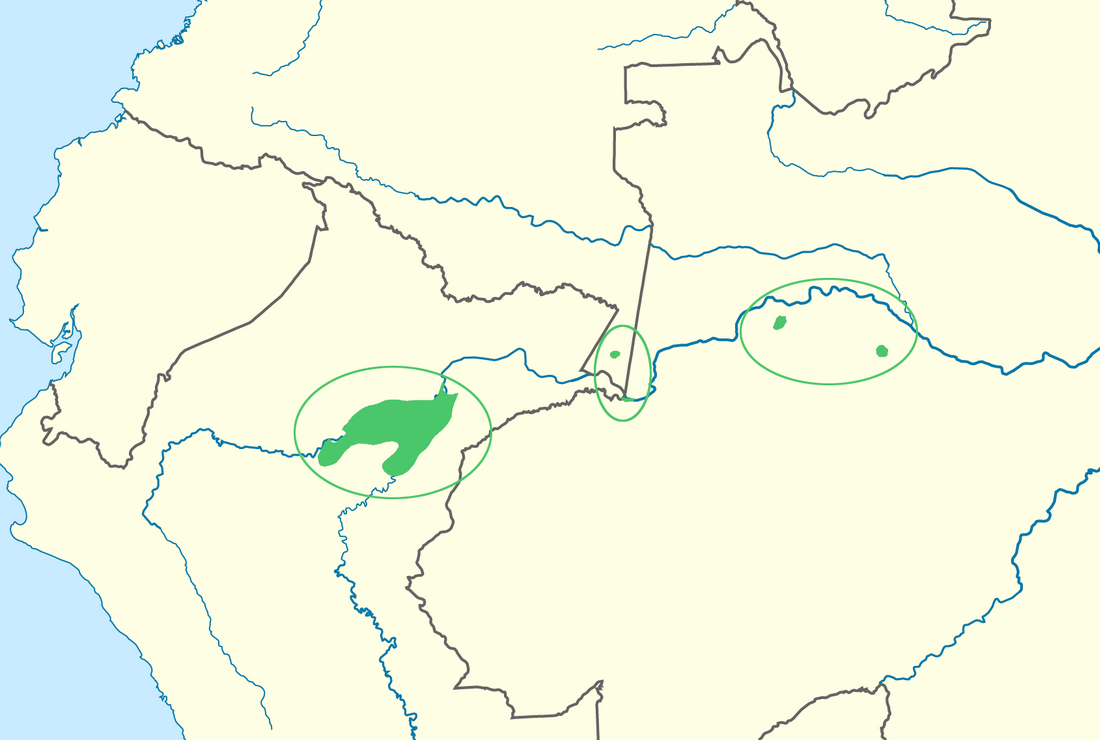Top Qs
Timeline
Chat
Perspective
Cocama language
Tupi language spoken in South America From Wikipedia, the free encyclopedia
Remove ads
Cocama (Kokáma) is a language spoken by thousands of people in western South America. It is spoken along the banks of the Northeastern lower Ucayali, lower Marañón, and Huallaga rivers and in neighboring areas of Brazil and an isolated area in Colombia. There are three dialects. The robust dialect is known as Cocama, Kokama, Kukama-Kukamiria, Ucayali, Xibitaoan, Huallaga, Pampadeque, and Pandequebo. By 1999, Cocamilla (Kokamíya) was moribund, being only spoken by people over 40.
You can help expand this article with text translated from the corresponding article in Portuguese. (May 2022) Click [show] for important translation instructions.
|
Remove ads
Classification
Cocama is closely related to Omagua, a nearly extinct language spoken in Peru and Brazil.
Geographic distribution
Out of a projected ethnic population of 15,000, the majority of Cocama speakers, 2,000, live in Peru. Remaining speakers live in Amazonas state in Brazil, where 50 out of 411 ethnic Chayahuitas speak it and it is known as Kokama or Kokamilla. Most speakers are trilingual and can also speak Portuguese and Spanish. Very few are monolingual. There are 20 ethnic groups in Colombia's Lower Putumayo area with an unknown number of Cocama-Cocamilla speakers. Most expected speakers would also be trilingual, but the language may be extinct in the region.
Remove ads
Revitalization efforts
In 2013, residents of Nauta, Loreto Province, Peru created a children's rap video in the Kukama-Kukamiria dialect, in collaboration with Radio Ucamara. The local radio station has been involved in efforts to preserve the language for "a few years," and "started managing a school called Ikuar, with the goal of teaching the language through songs and traditional story telling."[2]
Phonology
Consonants
Plosive sounds may also be realized as voiced.[3]
Vowels
Phonetic realisations
Remove ads
Orthography
| a | ë | i | ɨ | u | p | t | k | m | n |
| j | r | ts | ch | sh | w | ÿ | y |
Cocama speakers have a 3% literacy rate, compared with 50% for Spanish. Grammar rules have been developed and the language is written using the Latin script. Parts of the Bible have been translated into the language.
Notes
- Cabral (2012) argues that Kokama/Omagua is a mixed language, and so not directly classifiable, though most of its basic vocabulary is Tupi–Guarani.
References
Further reading
External links
Wikiwand - on
Seamless Wikipedia browsing. On steroids.
Remove ads

